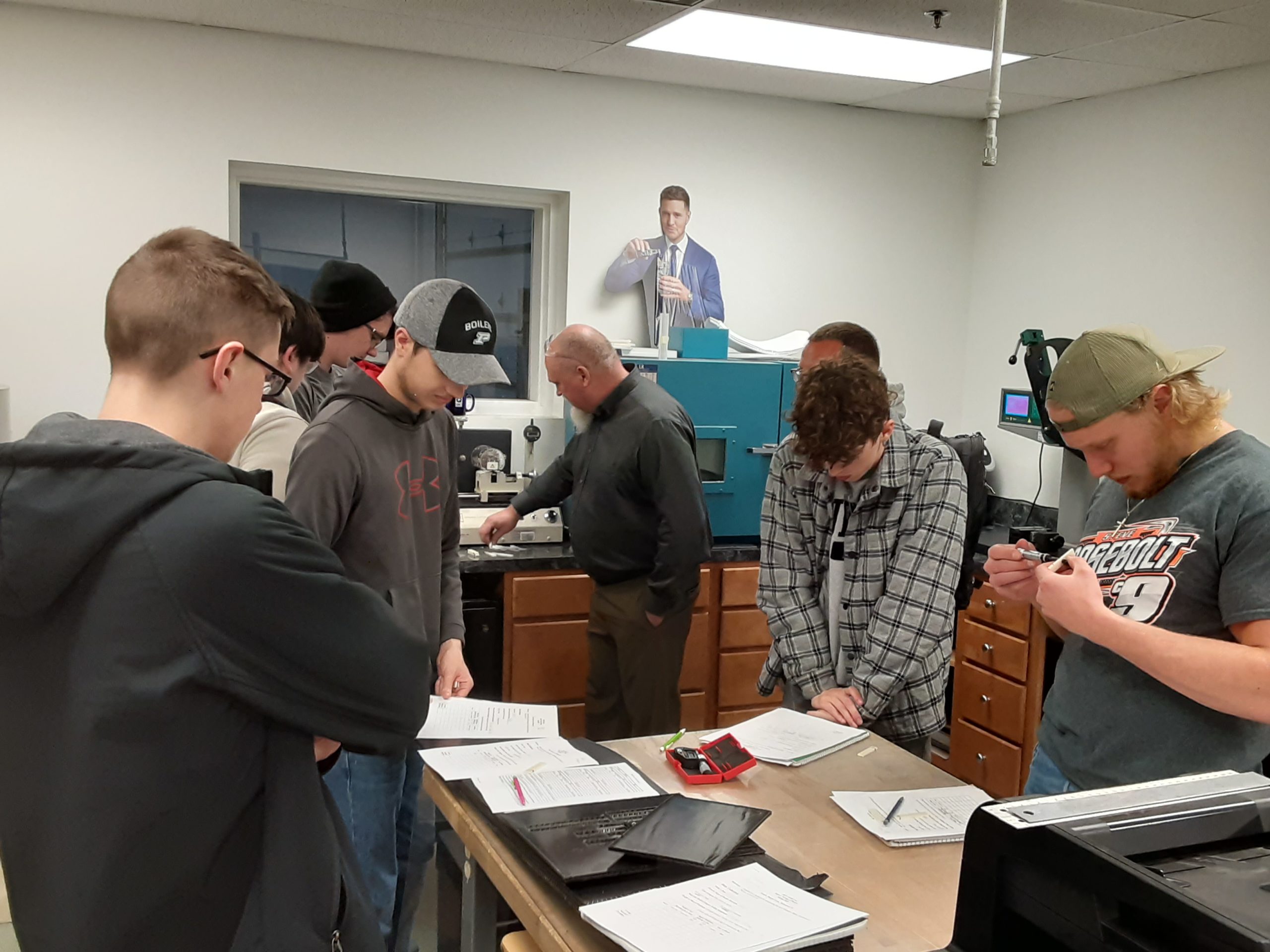Students design and make winning RC vehicle in partnership with Primex Plastics
When a group of engineering students at Purdue Polytechnic Institute accepted the challenge of building a plastic body for a radio-controlled model race car, they knew where to find help: Primex Plastics.
Working in Primex’s advanced design and testing facility in Richmond, the Purdue Polytechnic team’s race car won a trophy in national competition sponsored by the Society of Plastics Engineers Thermoforming Division. Primex provided materials and equipment that helped the team’s entry win a maneuverability and stability test on a small track.
SPE invited teams from across the United States to the competition, providing each with an 18-inch radio-controlled car without a body. Using plastic provided by Primex, the local students designed a body, stress-tested various plastics and then used a thermoforming process to make the shell.
Their instructor, Rex C. Kanu, an associate professor of practice in the School of Engineering Technology, said students first designed a body in the shape of a pickup truck. Then, they tested some of the various kinds of plastics made by Primex. They wanted to see which plastic would hold up best in everyday running as well as how well it absorbed the impact of a crash.
Primex has the perfect place for that, said Matt Vandivier, the company’s Applications Development Coordinator. It is the 3,000 square foot John J. Farber Technology and Innovation Center, where Primex develops new applications for the sheets of plastic it makes in Richmond. The center includes thermoformers, small extruders, injection machines and a testing lab.
After Purdue Polytechnic’s team settled on a design and the right kind of plastic, they cut the plastic and then formed it in the lab. Thermoforming, Vandivier said, is the process used to make products such as pickup truck bed liners that fit exactly over odd shapes.
The students made a mold of the shape they wanted. They heated the plastic to make it more malleable and placed it over the mold inside a vacuum chamber. The vacuum forced the plastic to take the shape of the mold by removing all of the air from the chamber. When it cooled, the plastic retained that shape, Vandivier said.
“The students were able to run the machine and control aspects of temperature, pressure and time so they can have a good part, fully formed,” Kanu said.
Then the students painted the shell gold and black and fastened it to the RC chassis.
The team received an all-expenses-paid trip to the SPE RC Car Competition in Grand Rapids, Michigan. Five college-level teams participated. Judges, who are professionals in the plastics industry, inspected the vehicles and reviewed a story board presentation of how the team designed and made it.
Each car ran a course over a test track laid out with turns, bumps and obstacles, Kanu said. Along with speed, the track tested maneuverability and stability.
“Fortunately, our students came out ahead of others,” and brought back a trophy that the school will keep until the next competition, in about two years.
For its part, Primex Plastics is happy to work with the students, Vandivier said. It gives the company exposure to people who might want to make careers in the plastics industry. Primex in Richmond makes plastic sheets that are used in other applications.
Primex hopes that its partnership with Purdue Polytechnic and other schools will help young people focus on a plastics career so that they can pursue the training they need to join the company or others in the industry. There are many different kinds of plastics manufacturing, he said, and many types of careers in each.
The partnership with Primex has provided students with exposure to the processes and machines used in those careers, as well as to experts in the field, Kanu said. Purdue Polytechnic has a small lab for students but Primex provides access to machines actually used in the business.
Purdue Polytechnic’s program aims to prepare students for a variety of careers that will provide a good living now and into the future, Kanu said: product engineers, production engineers, mechanical engineers, quality control and even the specialized skills needed to work as an engineer in a nuclear plant.
Purdue Polytechnic’s program includes a one-semester internship with a company that works in that field. Many of the internships are paid. Companies such as Primex Plastics provide those opportunities. Besides exposing students to real life work situations, the internships sometimes lead to a job at the same company.
“Selfishly, we hope to draw people to our industry. We’re trying to find opportunities for exposure to our industry,” Vandivier said.
Kanu said that fits the aims of his program. “We are helping local industry grow and they help train our students.”

